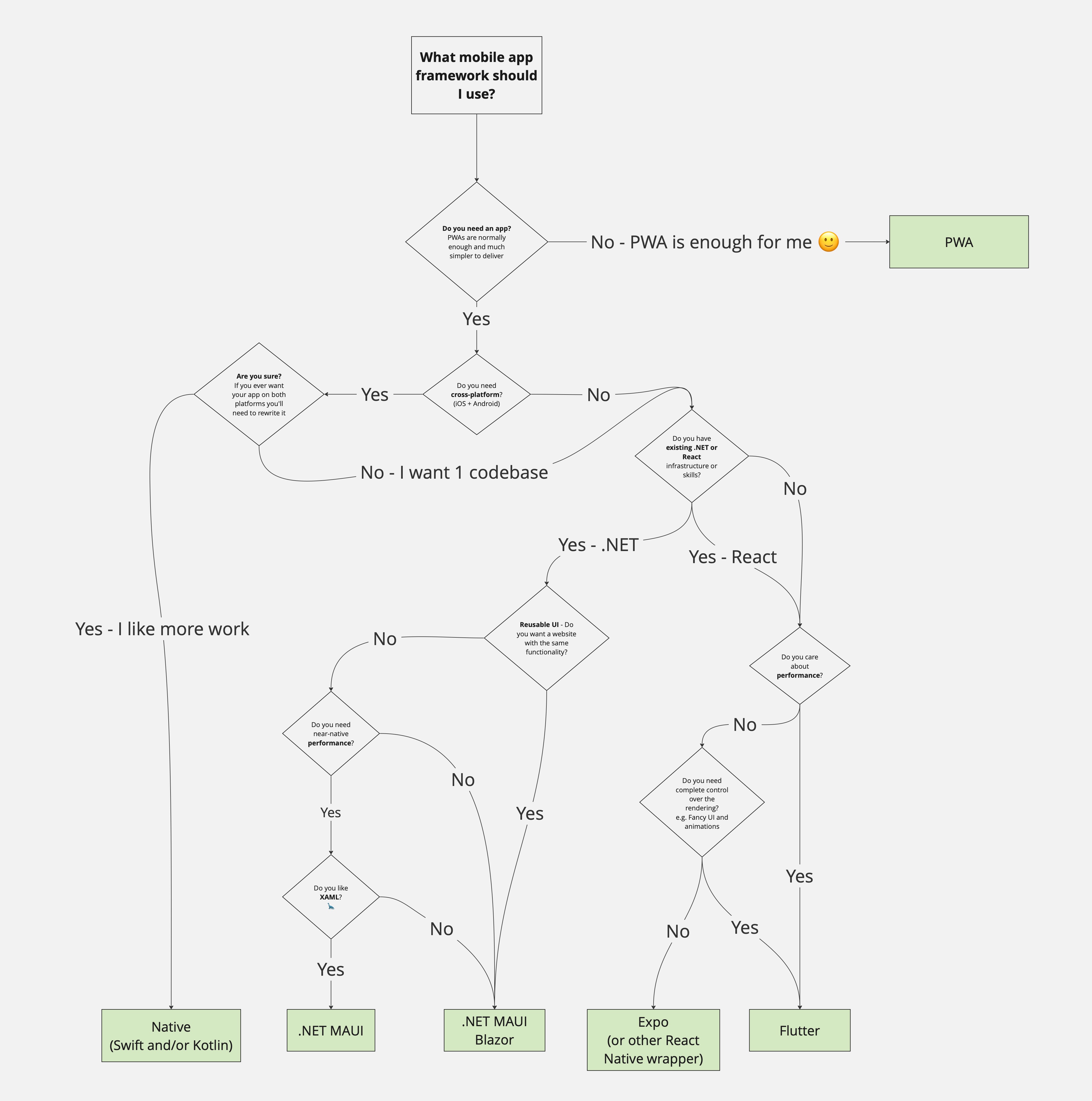
The Right Mobile App Framework - Comprehensive Decision Tree
A colleague recently introduced me to Expo. I read a bit about it and realized it was just another React Native wrapper. Similar to React, React Native is just a library with a bunch of frameworks built on top of it that all have their strengths and weaknesses.
It got me thinking about all the different app frameworks, and which I would use in different scenarios. I've considered this topic before, so I decided to document my current thoughts on the mobile app framework landscape.

Let's look at some of the decision points in the diagram.
Do you need a mobile app?
This is the most important question, and a lot of people get it wrong. Chances are, a mobile app is the wrong approach - Mobile app development is often slower and costlier than web development.
Often, a web app or PWA suffices.
Do you need a cross-platform app?
I can only think of a few scenarios where you don't need a cross-platform app (e.g. You might build an iOS app that provides some functionality that's already available on Android)
Even if you're building something to solve a problem that only applies to a single platform, you should still build a cross platform app to future proof. If you're going to go to the effort of building a mobile app, do it right - use a cross platform framework.
Existing skills or infrastructure - Make the most of what you already have
This one is simple.
- If you already have an awesome team of React Devs, use React Native
- If you have a team of .NET devs, use .NET MAUI
OR
- If you already have a React site, Stick with it! React Native will come naturally to your team.
- If you already have a .NET API or app, Stick with it! You might be able to reuse some of the code 🙂.
Performance needs
If your app, does fancy stuff like 3D rendering, or needs to be super fast, Pick a framework that compiles to native code like Flutter or .NET MAUI to get near-native performance. ⚡ React Native frameworks Tend to have slower startup times and be less performant.
.NET MAUI - Blazor or XAML?
I know some developers prefer XAML, but tend to lean toward Blazor for 2 reasons; Easy to build (IMO) and your UI code is reusable in a web app (Huge bonus if you need/already have a web app). Of course, there are Also benefits to XAML (E.g. compiles to native code), so do your research.
Summary of the options
Here's a breakdown of each approach:
- PWA: Best if you don't need an app and want a simpler delivery
- Native (Swift/Kotlin): Best if you prefer working with platform-specific code and tools
- .NET MAUI: High-performance apps with XAML and .NET infrastructure
- .NET MAUI Blazor: Ideal if you prefer Blazor for UI rendering
- Expo or React Native: Best if you prefer React and don't care about top-tier performance
- Flutter: Best for performance-centric apps with advanced UI components
Picking the right mobile app framework depends on your requirements, previous experience and existing infrastructure. Whether you like React Native's flexibility, Flutter's speed, or .NET MAUI's familiarity, there's a framework for you. I hope this guide helps you decide.
Let me know your thoughts - Disagree with any of the decisions?